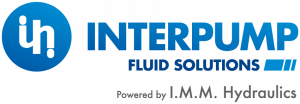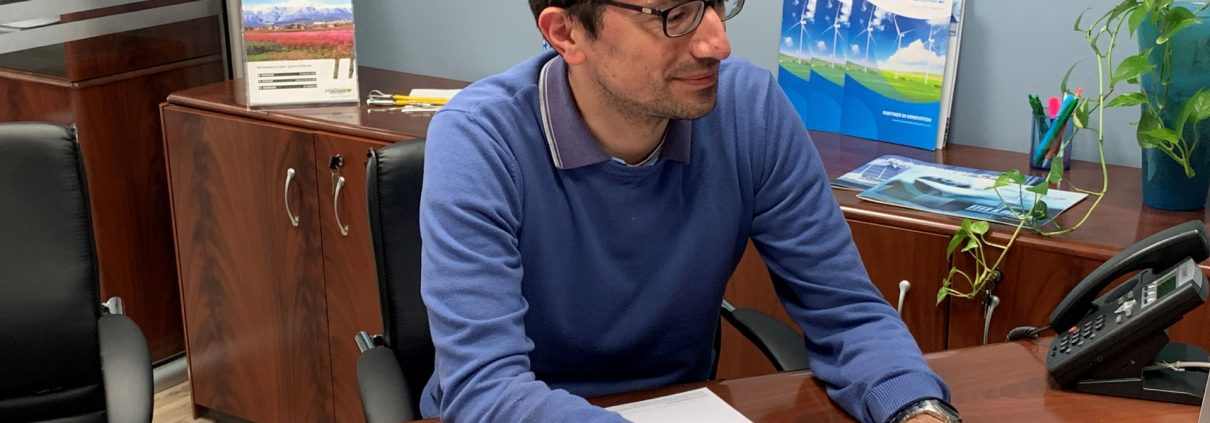Meet Lorenzo Panzone, Technical Manager at I.M.M. Hydraulics
We interviewed Lorenzo as another key figure in our company. We asked him to tell us the key features that most distinguish his work.
The Interview
Can you tell us what your role of Technical Manager involves?
Some of the processes the Technical Manager is responsible are:
- Product Design, Development and industrialization;
- Product Certification;
- Technical Documentation issue.
Another main task is to ensure that the documentation, procedures and communication flows smoothly. Also ensuring everything is in compliance with our high standards. After all, our target is – “Excellence”. As I.M.M. Hydraulics core business is technical products (Hose, Fittings & Machines) It is paramount the technical manager keeps everything clear, precise and accurate. Alongside this I have to consider the technical needs of our two crucial stakeholders:
- Customer: specification, requirements, requests;
- Company: the technical business unit is responsible for the correct communication aimed to inform and to train towards production (process engineering and documentation), marketing (technical documentation to support the proper product launch in the market), sales (technical support), quality (specs definition in order to define the related control plan), purchasing (in order to define the proper terms of purchase for the supplier).
Lorenzo is also the focal point for all phases of technical product management for the Stakeholders.
What is the value of timings as the person responsible for all these procedures?
First, I would like to thank you for this question and quote Peter Ducker:
Time is the scarcest resource and unless it is managed nothing else can be managed.
It is clear that the “Time to Market” concept is not only applicable to sales & marketing, but it can be extended to all company levels. In my specific area of the company, time management is a critical success factor. For example, in project management. Time is one of the main constraints as well as cost, quality and scope. Once technical construction specification is set up, timing is the base of product management. The engineering process cannot exceed certain time parameters, this also includes the fulfilment process of our production lines. These provide the final product from the raw materials.
Have you adapted any methods over the years to help with these output targets?
The outputs, as a measurement of the process, are not the only interesting parameters for a technical manager. An important issue to consider is the outcomes, as are the results of a process or a project that can be evaluated in terms of ROI or impact on business.
I have 3 methods I like to use:
Project Management – This is a really efficient tool that can generate great value in my position.
The Deming cycle – PDCA (Plan – Do – Check- Act) This is my second most important tool. An important task for me is to support and promote the continuous improvement of products and processes. For this reason, it is paramount to create a worthy cycle that takes the “AS IS” condition and establishes a path for an improved “TO BE”.
Risk-based thinking is also a powerful tool I use. I use this approach to do a risk evaluation and analysis (in accordance to technical specs, process and non-conformity or failure mode) and produce a dedicated action plan for design and construction process this then minimizes any the negatives and maximize the opportunities coming from a product and a process “value added” base.
All tools I use for technical issues must be based on the final target of a proactive approach to participate with all company entities, business development and continuous improvement with a clear and committed focus on the customer (internal and external).
What are the possible obstacles that you may have to overcome in this role?
As per my role and vision, I aim to always have a clear layout of targets and numbers. All related to the process and/or the product to be managed. Then my first challenge is to fully analyse the problem that I need to overcome, whilst keeping our different stakeholders in mind. The second challenge is to ensure we are always getting the best results from our inputs and meet all requirements. I wouldn’t call them obstacles within the company but more an “inertia” that comes from natural company dynamics with different approaches due to several entities involved.
Finally, my most important task is to keep a value-added approach coming from our products. Making sure they are:
- perfect for the requirements;
- customer focused;
- developed in an efficient, productive and sustainable way;
- Always in a continuous improvement process.



